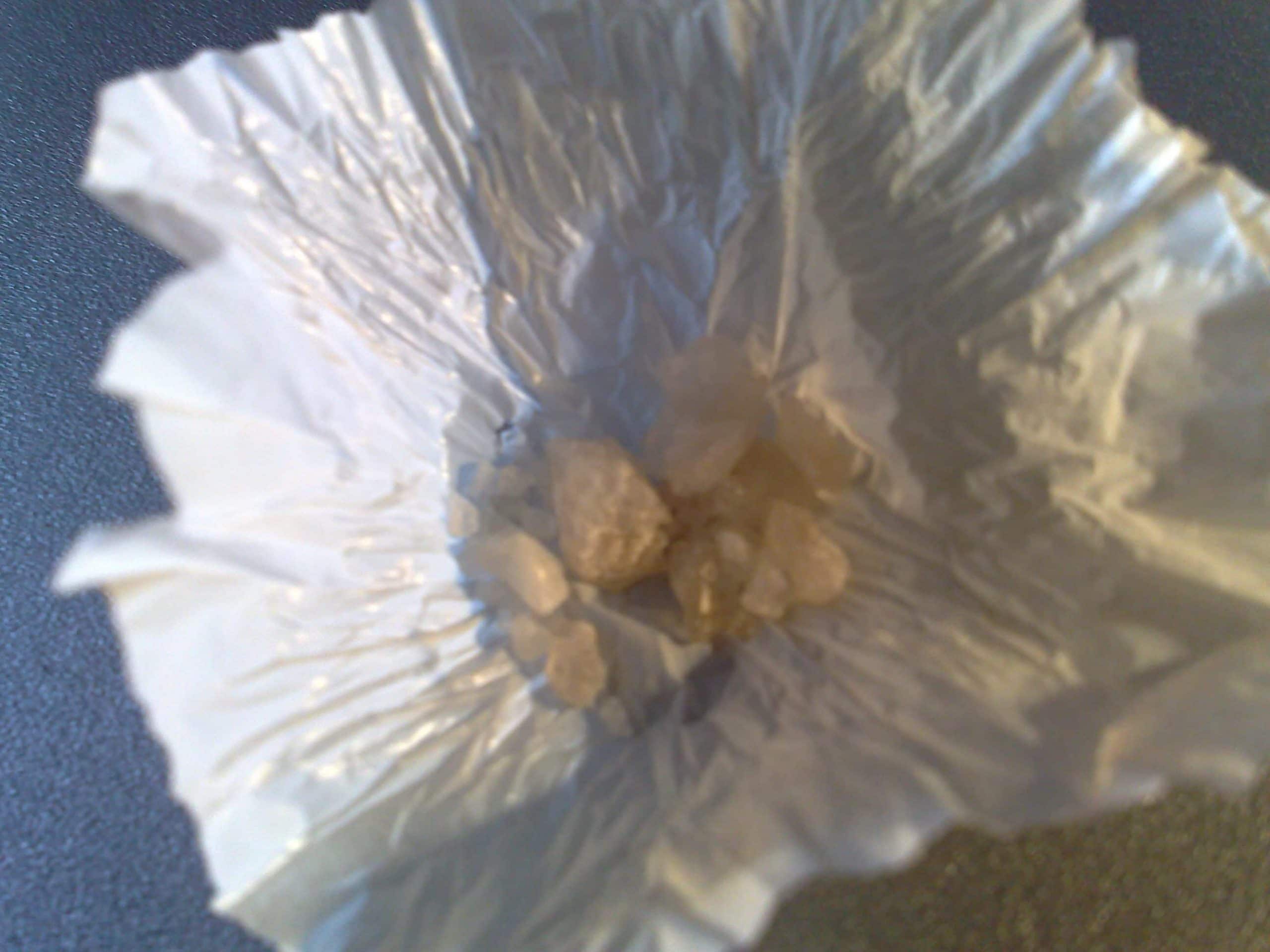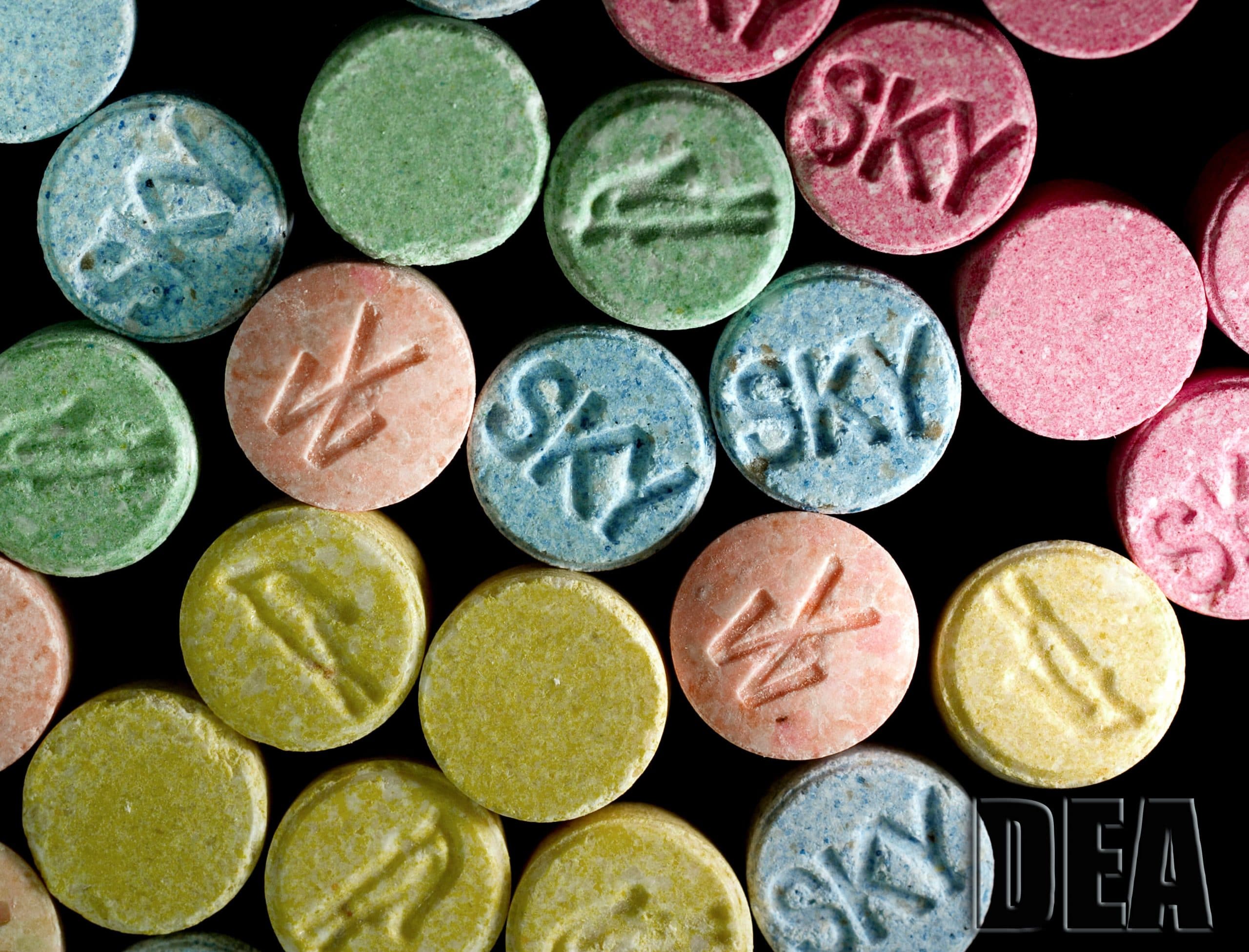MDMA Addiction – MDMA (methylenedioxymethamphetamine) is a synthetic drug that has both stimulating and hallucinogenic properties. Use results in increased energy, perceptional distortions, and enhanced sensory experiences.
It is commonly known by other names including “Ecstasy, “E,” or “Molly.” Ecstasy is usually found as a colorful pill, whereas Molly often comes in a powdered crystalline form that can also be inserted into capsules.
Is MDMA an Amphetamine?
MDMA is an amphetamine derivative that also has pharmacological properties of mescaline. Ecstasy, though related to amphetamines and other psychostimulants, differs in its chemical structure, effects, and patterns of use.
Getting into specifics, MDMA acts on the neurotransmitter dopamine comparable to amphetamines, and on the neurotransmitter serotonin, it acts in a manner similar to LSD, a hallucinogen. Moreover, it’s stimulating effects are much like amphetamines, but its sensory-enhancing properties can sometimes mimic an LSD-like experience.
Therefore. some officials have classified MDMA as a “hallucinogenic amphetamine,” while others argue that the drug deserves its own class due to its unique nature. As to whether MDMA is a true psychedelic drug, many consider it to be so, including scientists who have been studying it for possible mental health application.
Is MDMA Addictive?
MDMA is an amphetamine derivative that also has pharmacological properties of mescaline. Ecstasy, though related to amphetamines and other psychostimulants, differs in its chemical structure, effects, and patterns of use.
Getting into specifics, MDMA acts on the neurotransmitter dopamine comparable to amphetamines, and on the neurotransmitter serotonin, it acts in a manner similar to LSD, a hallucinogen. Moreover, it’s stimulating effects are much like amphetamines, but its sensory-enhancing properties can sometimes mimic an LSD-like experience.
Therefore. some officials have classified MDMA as a “hallucinogenic amphetamine,” while others argue that the drug deserves its own class due to its unique nature. As to whether MDMA is a true psychedelic drug, many consider it to be so, including scientists who have been studying it for possible mental health application.


What are the Effects of MDMA Addiction?
As noted, MDMA’s desirable effects include increased energy, euphoria, and distorted or enhanced sensory perceptions. Like any drug, however, using MDMA can also result in a wealth of adverse side effects, including the following:
- Dizziness and feeling faint
- Confusion
- Depression or anxiety
- Paranoia
- Insomnia or sleep disturbances
- Muscle tension and cramps
- Tremors
- Bruxism (teeth clenching)
- Nausea
- Sweating and/or chills
- Blurred vision
- Heightened libido, sometimes leading to unprotected sex
MDMA Poisoning
All forms of MDMA can produce dangerous side effects when overused. Users may take several tablets at once or disperse them throughout a brief period, a pattern that significantly increases the risk of overdose. The presence of other drugs may also increase this risk.
Signs and symptoms of MDMA overuse include the following:
- Uncontrolled body movements.
- Confusion
- Restlessness and anxiety
- Paranoia.
- Headache and blurred vision
- Bruxism (clenched jaws)
- Elevated body temperature, chills, and excessive sweating.
- Abdominal cramping
- Nausea, and vomiting.
- Rapid heart rate (tachycardia)
- Chest pains
- Elevated blood pressure.
- Urinary retention
- Sexual dysfunction
When an overdose (poisoning) of MDMA occurs, the following symptoms begin to manifest:
- Hypertension (very high blood pressure)
- Fainting
- Loss of consciousness
- Seizures
- Panic attacks
- Hyperthermia (overheating)
- Arrhythmia (irregular heartbeat)
The short-term symptoms
The short-term symptoms of MDMA poisoning abate around three to six hours after the last dose. Even modest use, however, can lead to effects that continue for as long as a week. These symptoms are often similar to those of other health issues, and may include:
- Impaired memory
- Lack of concentration
- Decreased appetite
- Decreased libido (sex drive)
- Irritability and anxiety
- Depression
- Aggression
MDMA is considered by many to be a relatively harmless drug. This is far from the truth, however, as the drug has been involved in many emergency situations where injuries, overdoses, and deaths have occurred.
Getting Help For MDMA Addiction
Taking the first steps to overcome your addiction can make a major change in your life from active abuse to sobriety. Though the steps you take may feel small and insignificant at first, realize that they are necessary to reach the final end goal of sobriety. Be patient with yourself and don’t rush through this process.
Choosing where to go for recovery is a critical step in sobriety. At Midwood Addiction Treatment, we give you the tools you need to beat your addiction and an experience you’ll never forget. No one can force you to be ready, but when you are, we will be here for you.
If you’re ready for that day to be today, call us now:
Most Insurance Accepted
We work with most major insurance carriers and offer a range of options to fit your lifestyle and financial means
Are You Ready to Change Your Life?
Call Us Today
A life free of drugs and alcohol is waiting for you. Our team is ready and eager to help you turn it all around. All it takes is a little willingness to make your start. Contact us today and let’s begin to write the next chapter in your life together.